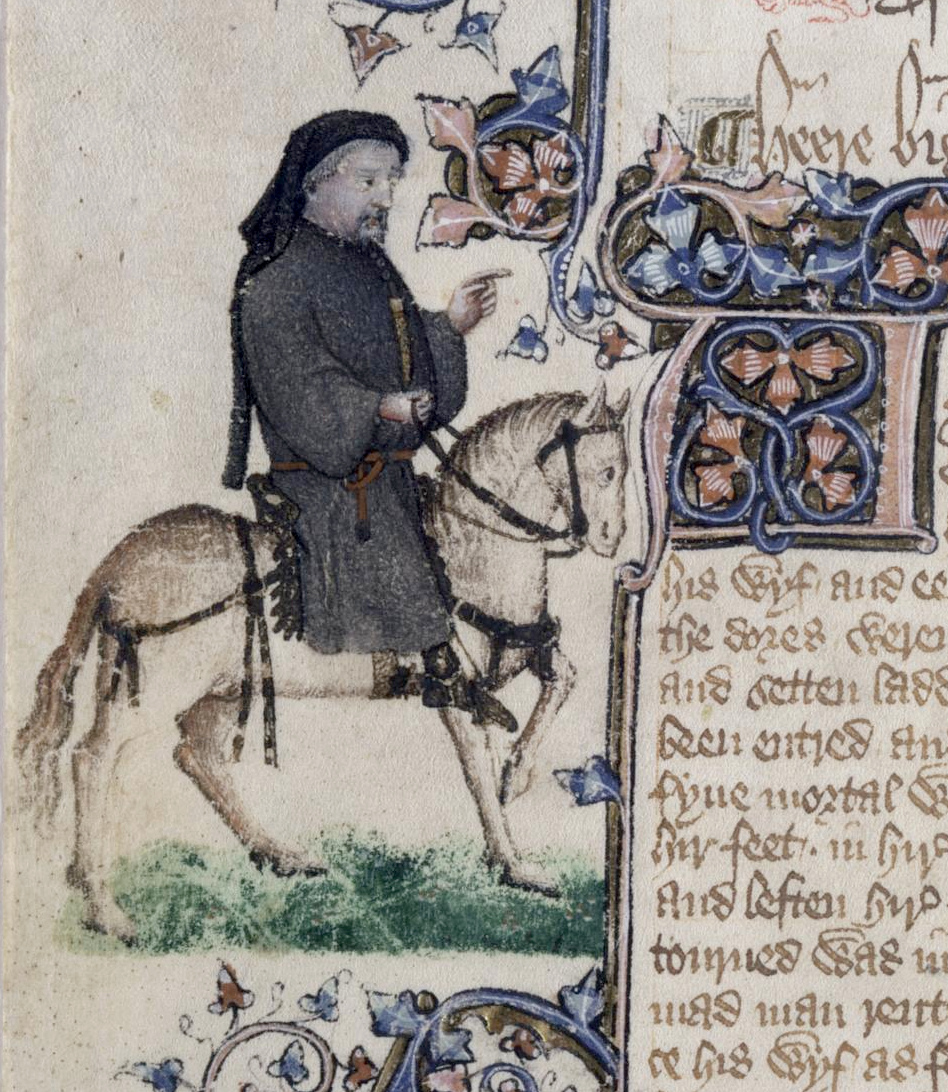"so priketh hem Nature in hir corages"
On the possible sexual meaning of "priketh" in line 11 of Chaucer's "General Prologue," I'm still poking around to see if anything comes up.
You'll recall the word and its immediate context (lines 9-11):
And smale foweles maken melodye,
That slepen al the nyght with open ye
(so priketh hem Nature in hir corages);
Dictionaries haven't so far provided much satisfaction on this issue, but I have yet to gaze at what the ever-stimulating Oxford English Dictionary has to unveil about "priketh" in Middle English.
The Online Etymological Dictionary that I cited yesterday does add that:
My prick was used 16c.-17c. as a term of endearment by "immodest maids" for their boyfriends.
How times change. No boyfriend would wish such a term of endearment these days. But the online etymology doesn't get to the point anyway, for it only alludes to Early Modern English, some 200 years later than Chaucer.
More to the point is what Stephen Knight writes in his article (pdf) "Chaucer: The Canterbury Tales" for Literature in Context, edited by Rick Rylance and Judy Simons (Palgrave-Macmillan, 2001):
The small birds are the first animals to wake in spring -- as in any morning -- but they too have cultural reference. They are 'smale', which means 'slender' not just small: the word is English, but has French connotations: ladies in romance are 'smale' in body, arms and fingers. Nature excites the birds' romantic love when it 'priketh' their hearts in blunt English, and this implies physicality -- the sexual pun on 'prick' operates in Middle as well as Modern English. But elaboration still exists because it is their 'corages' that are excited, not their 'hearts'. The French word points towards the domain of courtly love, an aristocratic elaboration that Chaucer himself has disseminated in English with his translation of part of The Romance of the Rose and his earlier dream poems about love like The Book of the Duchess. (p. 12)Knight is a respected scholar, so I assume that he knows what he's talking about in stating that "the sexual pun on 'prick' operates in Middle as well as Modern English," but I do wish that he had cited a source. As they say, "Trust, but verify."
I suppose that I'll keep probing into this prickly query...



10 Comments:
I'm afraid my OED won't help us much, because it's only the New Shorter. Anyway, "prick" as a noun could be a term of endearment for a boy in the mid 16th century. The NSOED also says "the penis, L16th." That seems just a bit too late for us, but I still think that what with the symbolism going on in these lines, that it may not matter too much if there is a pun on "prick" or not. I suppose it's possible that even if it isn't attested in this usage, the word still could have been used, undocumented, in this way.
Interesting. I would assume it meant very close to what it means now, truthfully.
Nathan, if I don't forget, I'll check my OED today.
Saur, based on the circumstantial evidence, I'm thinking that "priketh" had this double meaning, and Knight confirms that it does, but I still don't have a primary-source citation, which is what I'm looking for.
Jeffery Hodges
* * *
i just wonder why the 'nature' is in capital letter plz help?
Anonymous, spelling conventions in English have changed over the years.
Currently, we capitalize only proper nouns, words at the beginning of a sentence, and lots of words in titles, but in past centuries, common nouns were often capitalized.
The German language still does this with common nouns.
I'd bet that if you checked Milton's Paradise Lost, you'd find a lot of common nouns capitalized, too.
Jeffery Hodges
* * *
Oh, and thanks for visiting.
Jeffery Hodges
* * *
hi,
I found at http://nl.wikipedia.org/wiki/Middelengels
the deffinition of So priketh hem Nature in hir corages—
(fragment 'General Prologue' of Geoffrey Chaucers 'The Canterbury Tales' (1380-1400))
wich means : so Nature stimulates them in their hearts
priketh = stimulation as in dutch prikkeling
Gr Jenn
Thanks, Anonymous. The word apparently had a range of meanings. I wonder if "stimulate" had a sexual meaning.
Jeffery Hodges
* * *
[Tad late, sorry]
Don't know about double entendres but one translator describes priketh as 'spurs'.
Four_Translations_of_Prologue_pdf
[single mention in Trans. B notes]
wiki,spurs :
"Early spurs had a neck that ended in a point, called a prick, riveted to the heel band."
"the rowel spur did not come into general use until the 14th century." (C Tales c.1390)
Chaucer also refers to spurs directly a number of times; "paire of spores sharpe".
Thanks!
Jeffery Hodges
* * *
Post a Comment
<< Home